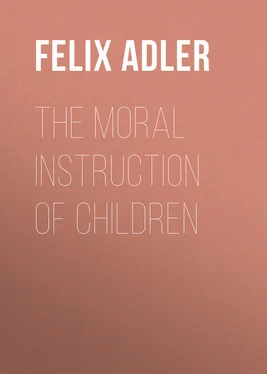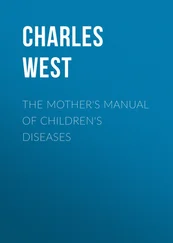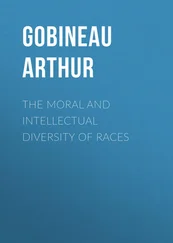Felix Adler - The Moral Instruction of Children
Здесь есть возможность читать онлайн «Felix Adler - The Moral Instruction of Children» — ознакомительный отрывок электронной книги совершенно бесплатно, а после прочтения отрывка купить полную версию. В некоторых случаях можно слушать аудио, скачать через торрент в формате fb2 и присутствует краткое содержание. Жанр: foreign_language, foreign_antique, foreign_prose, на английском языке. Описание произведения, (предисловие) а так же отзывы посетителей доступны на портале библиотеки ЛибКат.
- Название:The Moral Instruction of Children
- Автор:
- Жанр:
- Год:неизвестен
- ISBN:нет данных
- Рейтинг книги:3 / 5. Голосов: 1
-
Избранное:Добавить в избранное
- Отзывы:
-
Ваша оценка:
- 60
- 1
- 2
- 3
- 4
- 5
The Moral Instruction of Children: краткое содержание, описание и аннотация
Предлагаем к чтению аннотацию, описание, краткое содержание или предисловие (зависит от того, что написал сам автор книги «The Moral Instruction of Children»). Если вы не нашли необходимую информацию о книге — напишите в комментариях, мы постараемся отыскать её.
The Moral Instruction of Children — читать онлайн ознакомительный отрывок
Ниже представлен текст книги, разбитый по страницам. Система сохранения места последней прочитанной страницы, позволяет с удобством читать онлайн бесплатно книгу «The Moral Instruction of Children», без необходимости каждый раз заново искать на чём Вы остановились. Поставьте закладку, и сможете в любой момент перейти на страницу, на которой закончили чтение.
Интервал:
Закладка:
There are two defects of the moral fanatic which can now be signalized: First, he wrongly believes that whatever is not of morality is against it. He therefore is tempted to frown upon the natural pleasures; to banish them if he can, and, if not, to admit them only within the narrowest possible limits as a reluctant concession to the weakness of human nature. In consequence, the moral fanatic commits the enormity of introducing the taint of the sense of sin into the most innocent enjoyments, and thus perverts and distorts the conscience. Secondly, he is always inclined to seek a moral reason for that which has only a natural one; to forget that, like the great conquerors of antiquity, Morality respects the laws of the several realms which it unites into a single empire, and guarantees to each the unimpaired maintenance of its local customs. These remarks are intended to serve as a general caution. I find that young people, when they have become awakened on ethical subjects, often betray a tendency toward moral asceticism. I find that teachers, in the earnest desire to impress the laws of the moral empire, are sometimes betrayed into disregarding the provincial laws of the senses, the intellect, and the feelings; are apt to go too far in applying moral prescriptions to the minutiæ of conduct; are apt to leave the impression that pleasant things, just because they are pleasant, are therefore sinful.
But we have now to take a further step, which will bring us close to our special subject for to-day, viz., the efficient motives of good conduct. The non-moral faculties are not only not anti-moral, as has been shown, but, when appealed to in the right way, they lend to Morality a friendly, an almost indispensable support. The æsthetic, the intellectual, and the emotional faculty have not in themselves a moral quality, but when used as auxiliaries they pave the way for moral considerations pure and simple, and have in this sense an immense propædeutic value. Without entering in this place into the philosophy of æsthetics, it is enough to say that the beautiful, like the good, results from and depends on the observance of certain limits and certain relations. And it will not seem far-fetched to suggest that pupils who have been trained to appreciate moderation, restraint and harmony of relations in external objects, will be predisposed to apply analogous measures to matters of conduct, and that a standard of valuation will thus be created in their minds which must prove favorable to right action. Æsthetics may become a pedagogue unto ethics. The same pedagogical function may be claimed for the intellect. The intellect traces the connection between causes and effects. Applied to conduct, it shows the connection between acts and their consequences. It is the faculty which counsels prudence. One does not need to accept the egoistic theory of morals to concede that self-interest is an ally of morality, that Prudence and Virtue travel hand in hand a certain distance on the same road. Not, indeed, until the ideal state shall have been reached will the dictates of the two ever coincide entirely; but to a certain extent the coincidence already exists, and the moral teacher is justified in availing himself of it as far as it goes.
To take a very simple case – a child handles a knife which it has been told not to touch, and cuts his fingers. Morally speaking, his fault is disobedience. He would have been equally guilty if he had escaped injury. But he would hardly be so ready to obey another time, if he had been less sharply reminded of the usefulness of obedience. It is wrong to lie – wrong on purely moral grounds, with which self-interest has nothing to do. But for all that we can not dispense with the lesson contained in the well-known fable of the boy who cried, "Wolf!" It is wrong to steal on purely moral grounds. But even a child can be made to understand that the thief, as Emerson puts it, "steals from himself," and that, besides being a rogue, he is deficient in enlightened self-interest. The maxim that honesty is the best policy is true enough so far as the facts are concerned, which come under the observation of children, though one may question whether it be true absolutely.
Lastly, when we come to consider the emotional faculty, we find that the intimate connection between it and the moral is so generally conceded as to make it quite superfluous to expatiate on it. On the contrary, it seems necessary to expostulate with those who claim too much credit for the feelings, who ascribe to them a moral value which they by no means possess. Thus, gentleness is not necessarily a virtue; it may be a mere matter of temperament. Sympathetic impulses, per se , are not praiseworthy. Sympathy quite as often leads us astray as aright; sympathy, indeed, unless tutored and regulated by moral principles, is a danger against which we ought to be on our guard almost as much as against selfishness. Yet, no one will deny that the feelings, when rightly trained, are of inestimable service as auxiliaries in the task of moral education.
To sum up, let me say that the wise teacher will appeal to the taste, the intelligence, and the feelings of his pupils; that he will touch these various springs of conduct all the time, and get from them all the help he can. Thus, when speaking of cleanliness, he will appeal to the æsthetic instinct of the children, awakening in them a feeling of disgust at untidiness. He will appeal to the prudential motive, by showing that want of cleanliness breeds disease. "You do not wish to be sick? You do not wish to suffer? Therefore, it is to your interest to be clean." But, finally, he will touch a higher motive than any of these. "If you are unclean, you cease to respect yourself." And the term self-respect expresses in a condensed form the moral motive proper. It implies the idea of moral personality, which it is not necessary, nor possible, at this stage to analyze, but which the pupil will somehow understand, for his conscience will respond. In many cases the appeal will be made chiefly to the sympathetic feelings; for through these feelings we become aware of the pains and joys of others, and thus of the consequences of the benefits we confer or the evil we inflict. The sympathetic feelings supply the information upon which the will can act. They tell us that others suffer or are glad. And yet the strength to labor persistently for the relief of others' suffering and the enhancement of others' joy – that we can derive from the moral impulse alone.
The moral motive is the highest, it is really the only sufficient motive. Pray, understand me well at this point. I should say to the child: It is wrong to lie. That is sufficient. It is wrong, it is forbidden; you must yourself acknowledge the truth of my words, because you despise yourself when you have told a lie. But, in order to strengthen your weak resolution, to confirm you in well-doing, let me show you that it is also contrary to self-interest to lie, and likewise that it is disgusting to be unclean, and that a wrong done to another causes pain. Thus the æsthetic, intellectual, and emotional faculties are called in as witnesses to bear testimony to the moral truths; they are invited to stand up in chorus and say Amen! to the moral commands.
III.
OPPORTUNITIES FOR MORAL TRAINING IN THE DAILY SCHOOL
The school should be to the pupil not an intellectual drill-ground, but a second home; a place dear at the time, and to be gratefully remembered ever after; a place in which his whole nature, and especially what is best in him, may expand and grow. The educational aim should be, not merely to pave the pupil's way to future success, not merely to make of his mind a perfect instrument of thought, a kind of intellectual loom, capable of turning out the most complicated intellectual patterns. The aim should be, above all; to build up manhood, to develop character. There is no school in which moral influence is wanting. The pity is, that in many schools it is incidental, not purposed. And yet there are manifold opportunities in every school for influencing the moral life. Let us consider a few of these.
Читать дальшеИнтервал:
Закладка:
Похожие книги на «The Moral Instruction of Children»
Представляем Вашему вниманию похожие книги на «The Moral Instruction of Children» списком для выбора. Мы отобрали схожую по названию и смыслу литературу в надежде предоставить читателям больше вариантов отыскать новые, интересные, ещё непрочитанные произведения.
Обсуждение, отзывы о книге «The Moral Instruction of Children» и просто собственные мнения читателей. Оставьте ваши комментарии, напишите, что Вы думаете о произведении, его смысле или главных героях. Укажите что конкретно понравилось, а что нет, и почему Вы так считаете.












